Pitt Innovation Challenge 2019

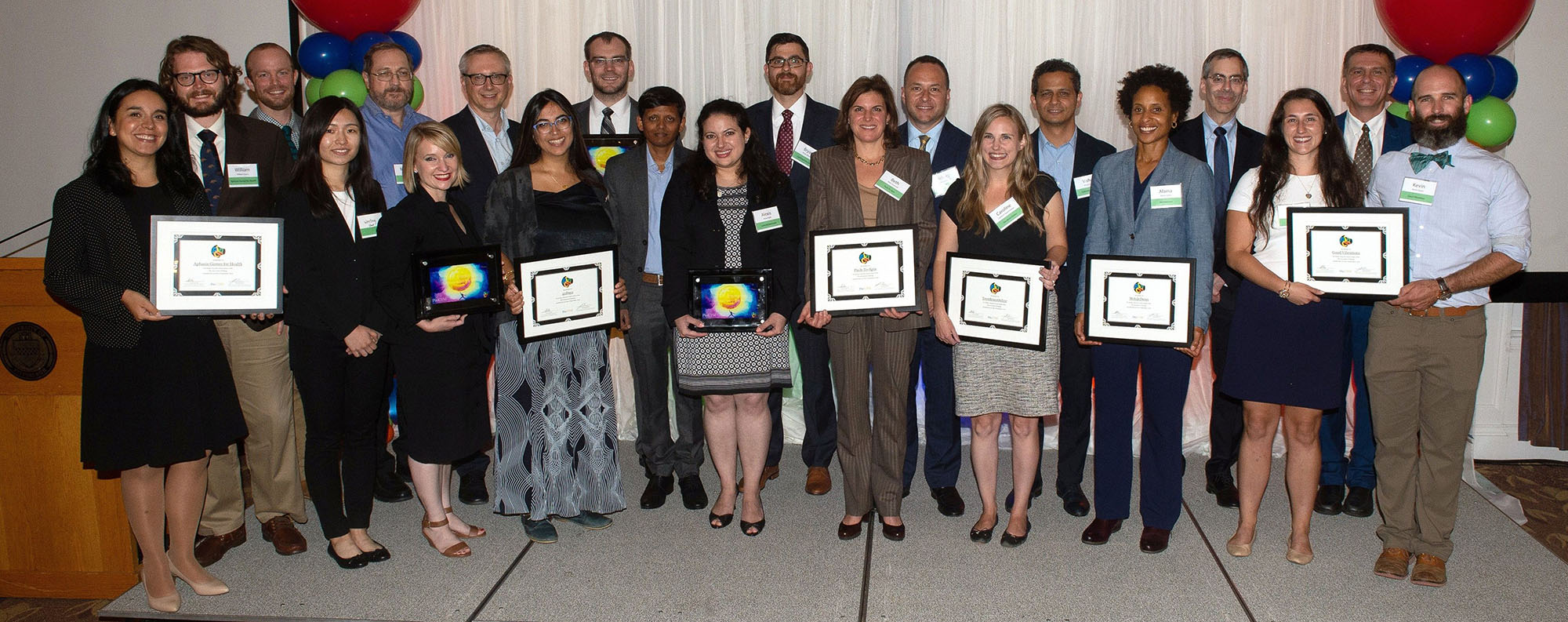
The Pitt Innovation Challenge (PInCh®) 2019 focused on bold solutions to an important health problems. Teams entered the challenge by submitting a two-minute video explaining their bold idea to solving an important health problem. Advancing teams submitted a three-page project proposal and budget for round two. Proposals were reviewed by a team of experienced reviewers with expertise and background in areas including clinical medicine, basic and clinical research, and innovation. Finalists selected for round three submitted a response to reviewer comments, made revisions, and prepared a pitch.
Six finalists were selected to compete for $100,000 in awards and a chance to pitch to a live judging panel and audience. Eight additional finalists were invited to compete for $25,000 during a poster session at the final event on September 25, 2019. Each of the winning teams received an award for direct costs and project management support from the Clinical and Translational Science Institute (CTSI) to take the team’s solution one step farther along the path of development.
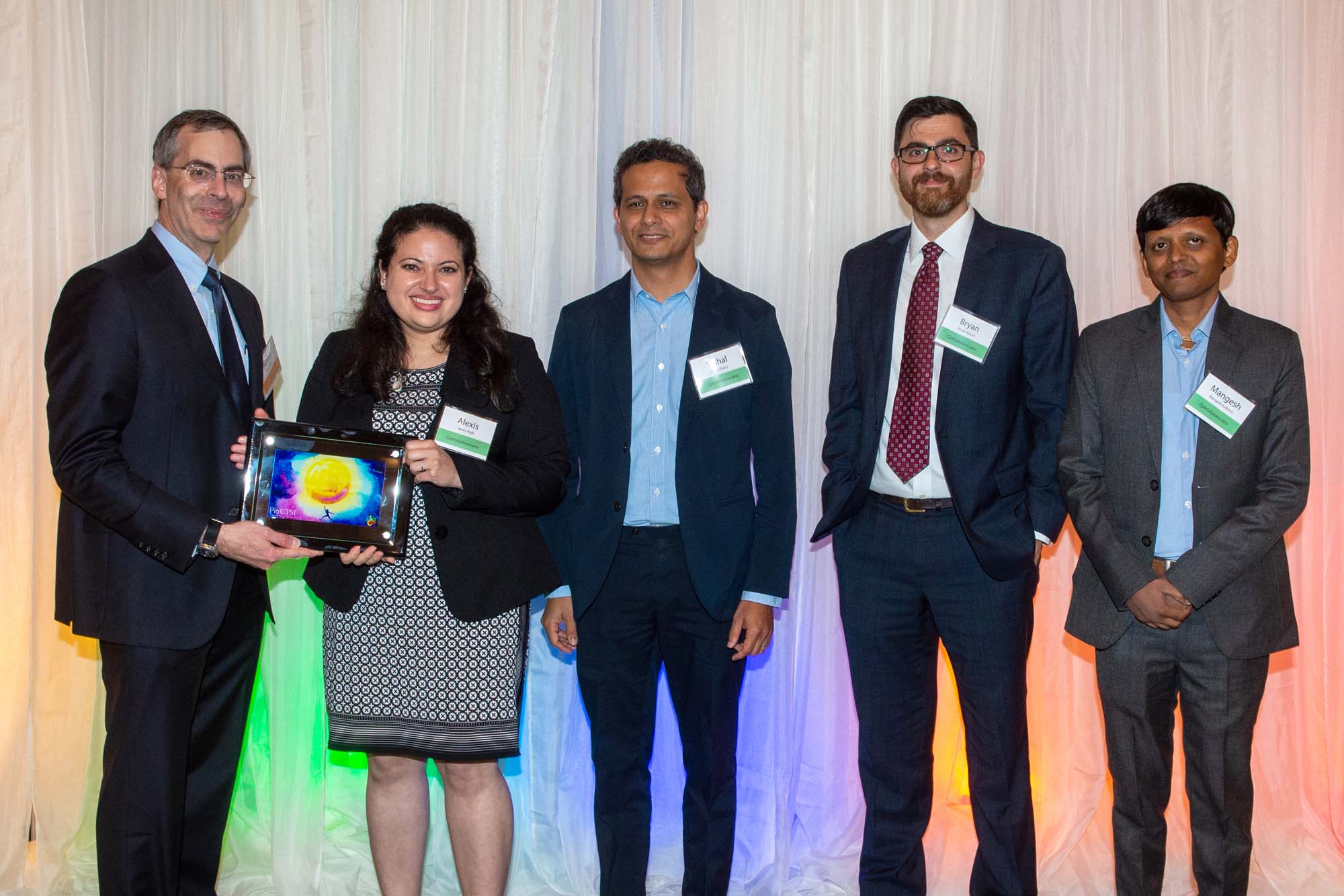
Team Members: Alexis Nolfi; Vishal Jhanji, MD; Mangesh Kulkarni, PhD; Bryan Brown, PhD
Description: A silicone-hydrogel-based contact lens that has been coated with natural biopolymers containing an immune modifying drug for the treatment of dry eye disease.
Round 1 Application Video
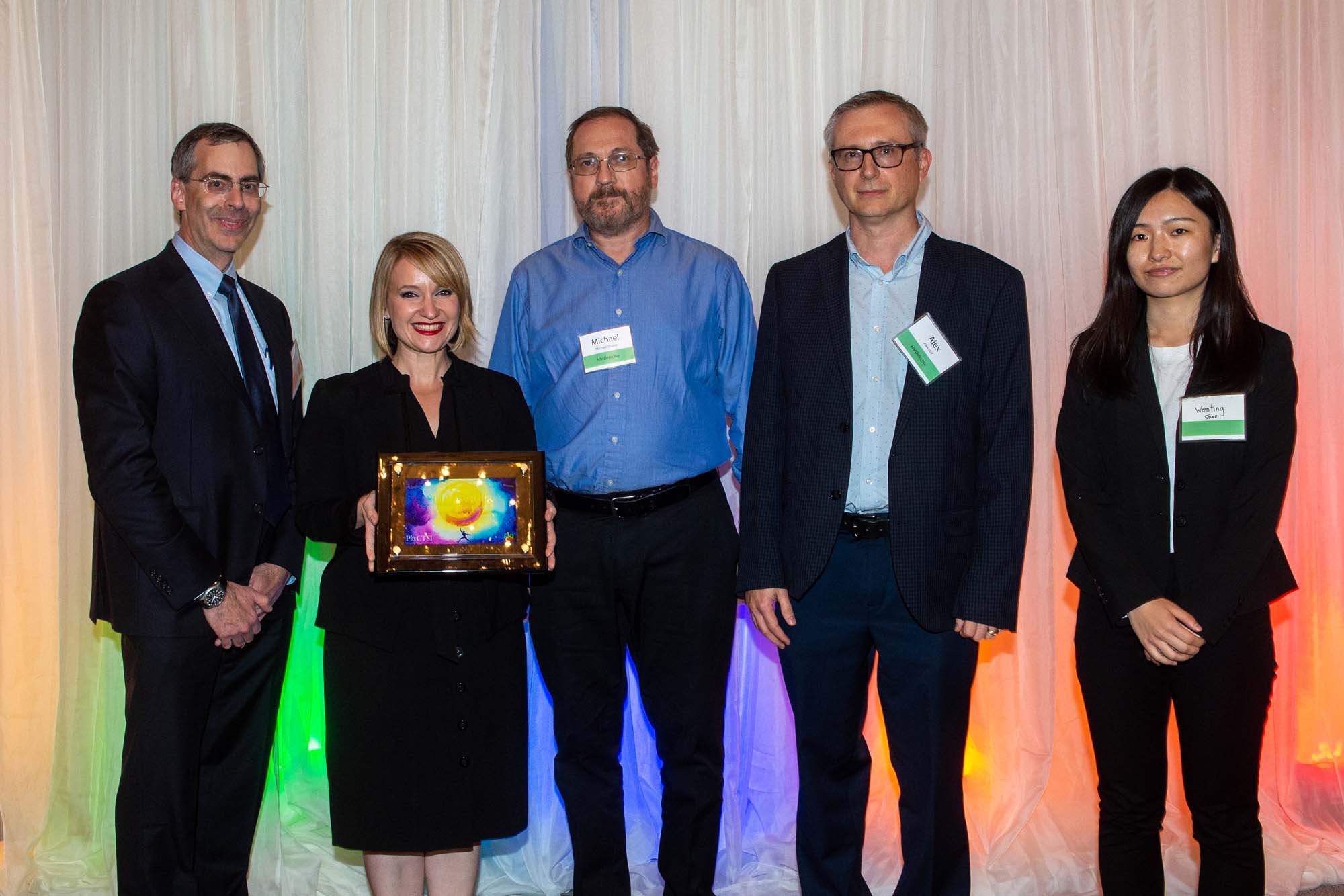
Team Members: Sarah Wheeler, PhD; Alex Star, PhD; Michael Shurin; MD, PhD
Description: Rapid, accurate HIV testing is lacking to achieve HIV eradication. HIV Detective is a point-of-care HIV test that aims to give results in one minute.
Round 1 Application Video
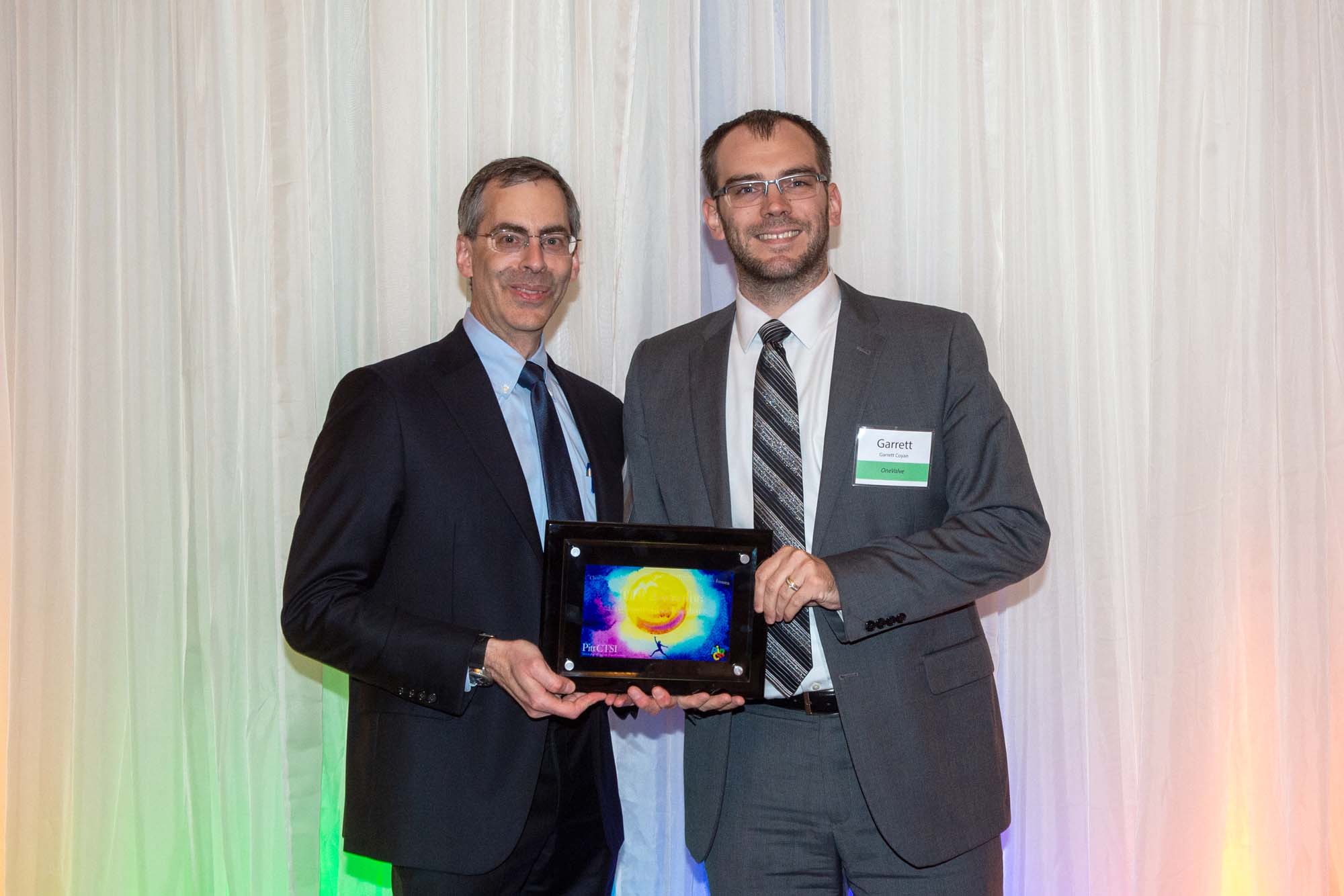
Team Members: Garrett Coyan, MD; Antonio D'Amore, PhD; William Wagner, PhD
Description: Self-regenerating heart valve that uses the patient’s natural healing process to replace diseased heart valves, decreasing the risk of blood clots and improving durability over current therapy.
Round 1 Application Video
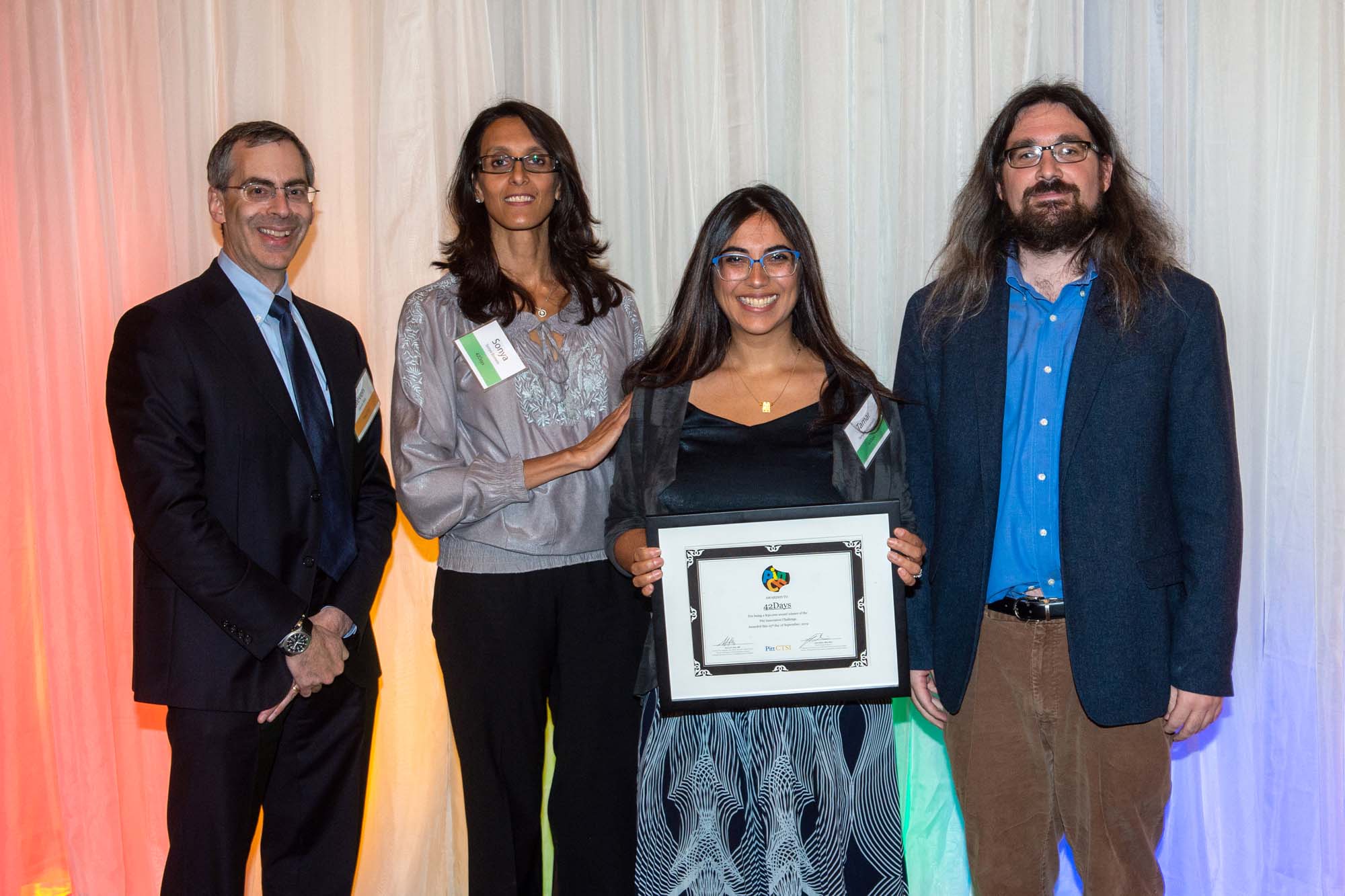
Recipient of $5,000 bonus award focused on rural health disparities
Team Members: Tamar Krishnamurti, PhD; Hyagriv Simhan, MD, MS; Sonya Borreo, MD, MS; Alex Davis, PhD
Description: A mobile health platform to identify maternal mortality risk at a time when women need it most, providing real-time intervention delivery and connection to care.
Round 1 Application Video
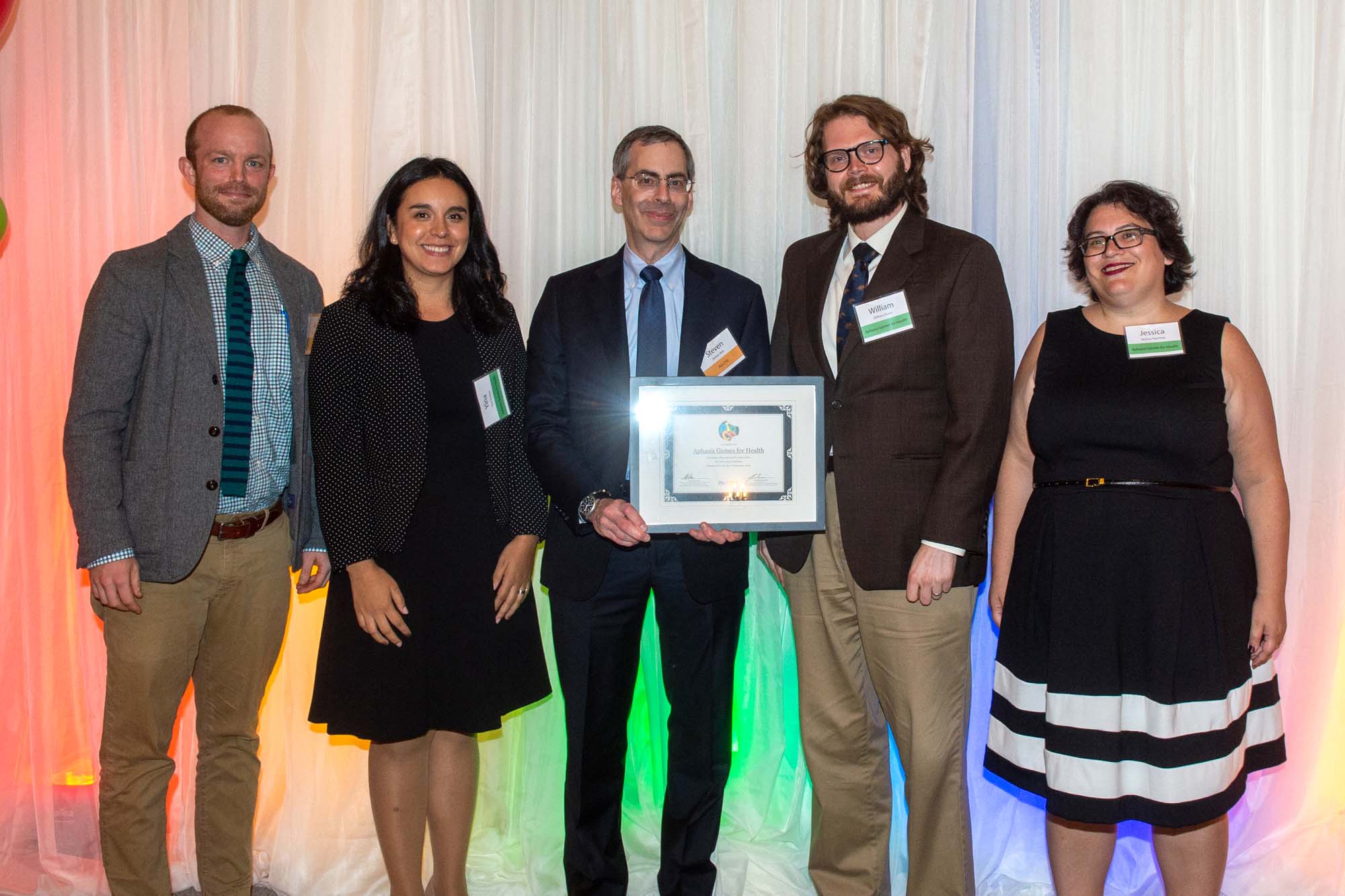
Team Members: William Evans, PhD, CCC-SLP; Rob Cavanaugh, MS, CCC-SLP; Jessica Hammer, PhD
Description: Bringing together translational researchers, industry partners, and patient stakeholders to co-develop an aphasia treatment game that can improve language outcomes and fight social isolation.
Round 1 Application Video
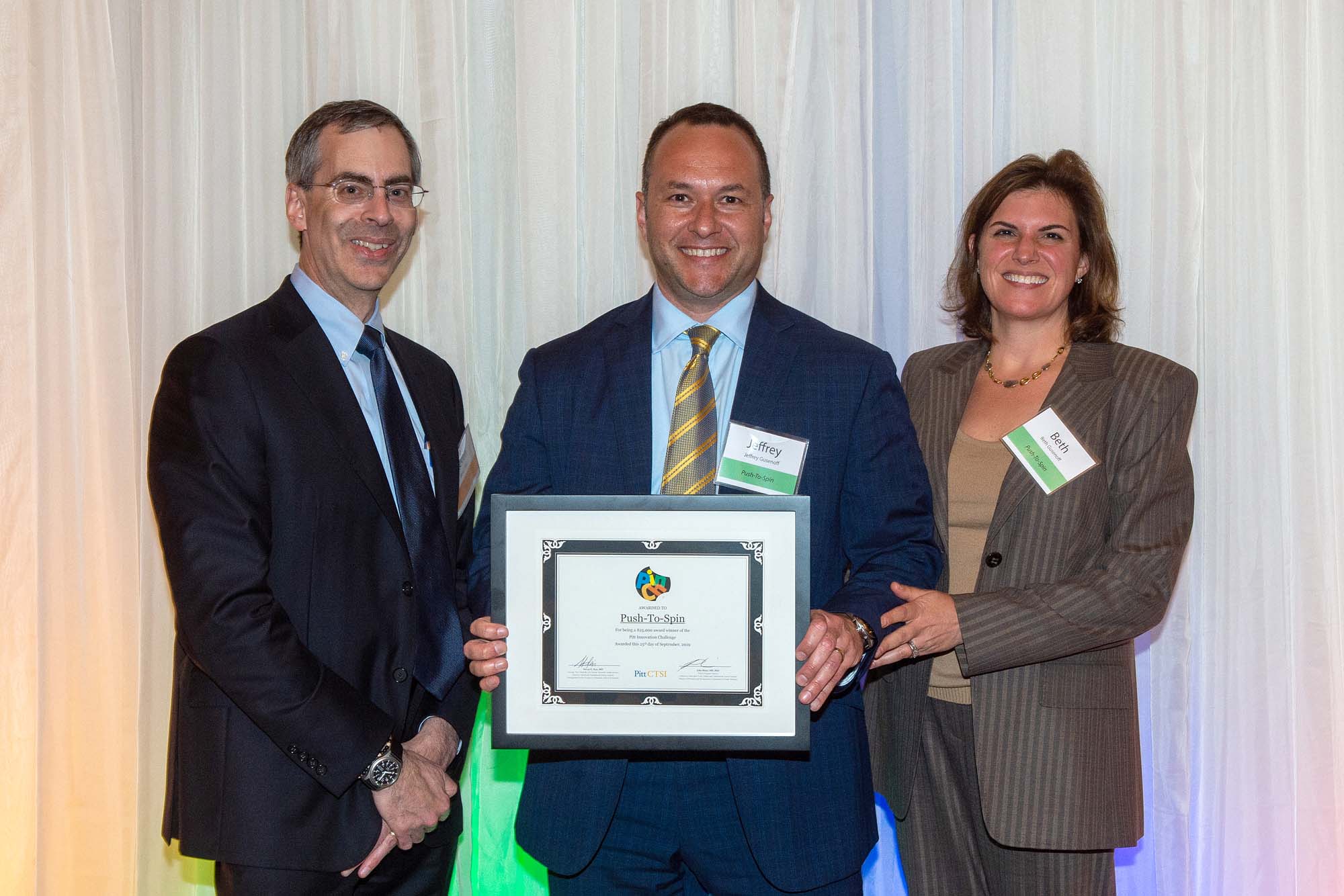
Team Members: Jeffrey Gusenoff, MD; Beth Gusenoff, DPM; Lauren Kokai, PhD; David Aliberti; Jason Morton
Description: A novel device to make surgical fat grafting procedures more efficient. This device allows aspiration of fat, centrifugation, and reinjection of fat back into a patient in a single device without contamination.
Round 1 Application Video
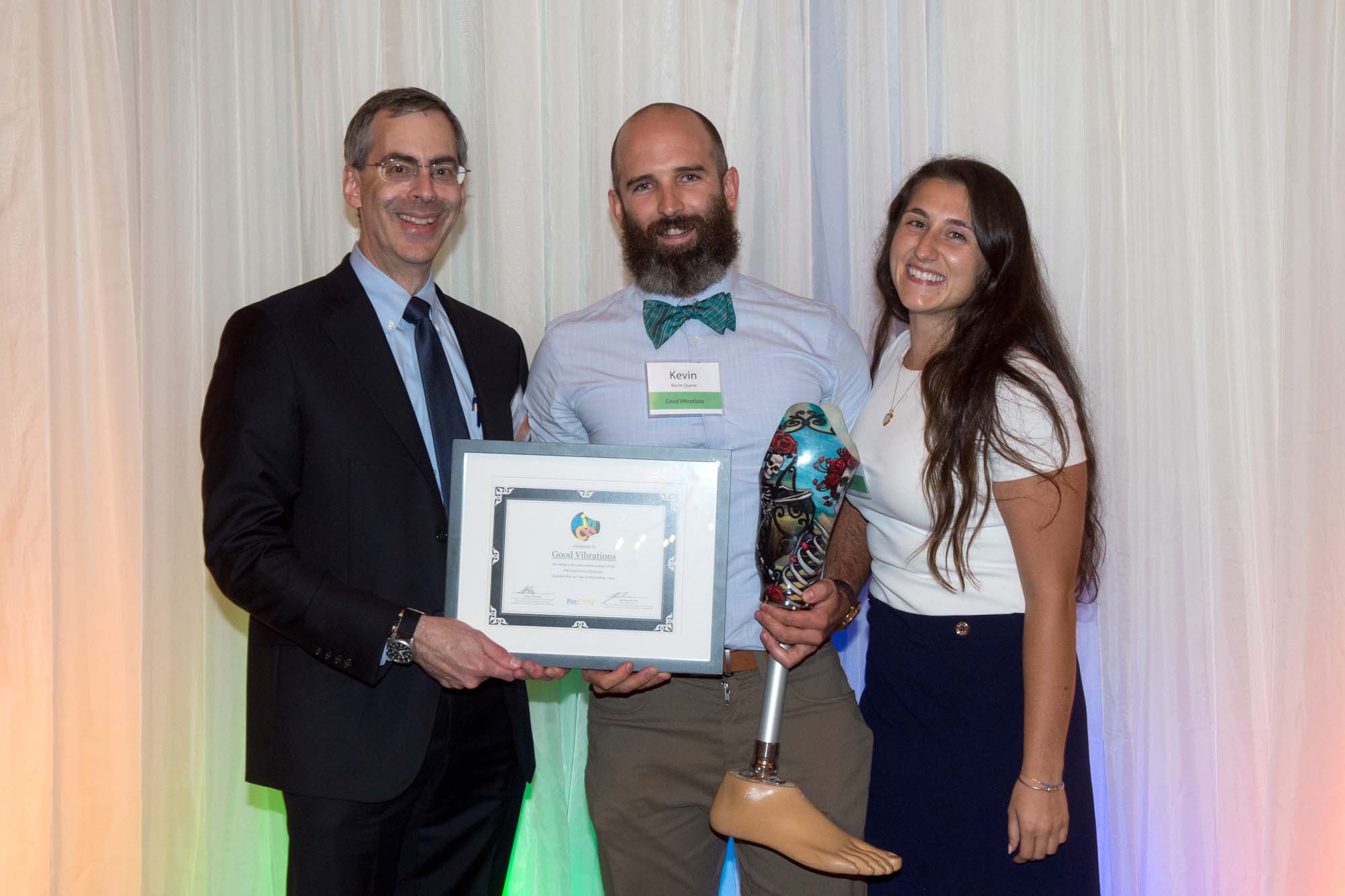
Team Members: Brianna Perry; Kevin Quinn; Goeran Fiedler, PhD; Mary-Ann Miknevich, MD; David Brienza, PhD
Description: A novel vibration therapy device for treating residual/phantom limb pain and muscle atrophy in amputees.
Round 1 Application Video
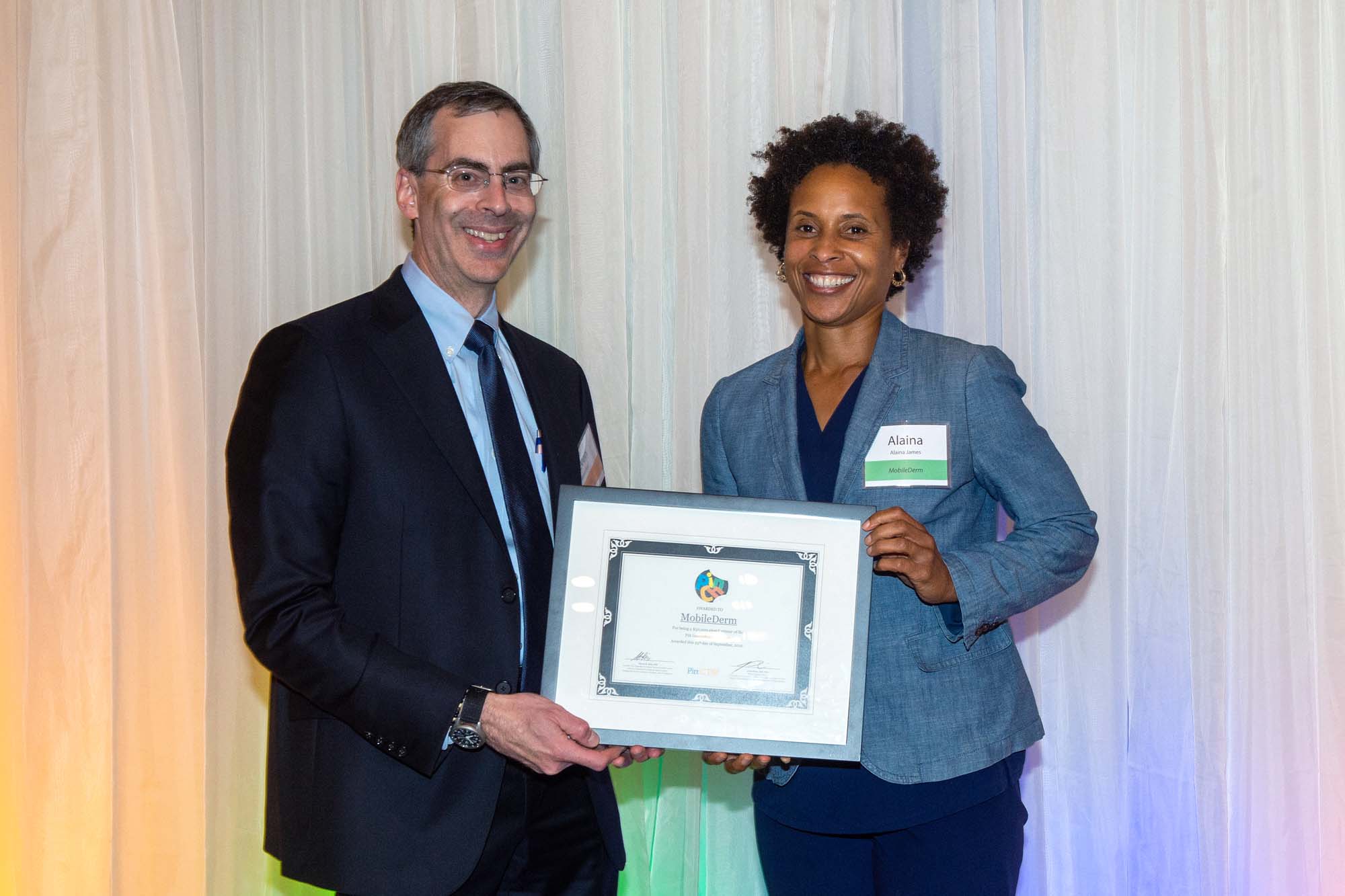
Recipient of $5,000 bonus award focused on rural health disparities
Team Members: Alaina James, MD, PhD; Joseph English, MD; Jonhan Ho, MD, MS
Description: A pop-up clinic providing dermatologic care to rural and vulnerable communities by traveling to their areas and sustaining partnerships with eDermatology and teledermatology.
Round 1 Application Video
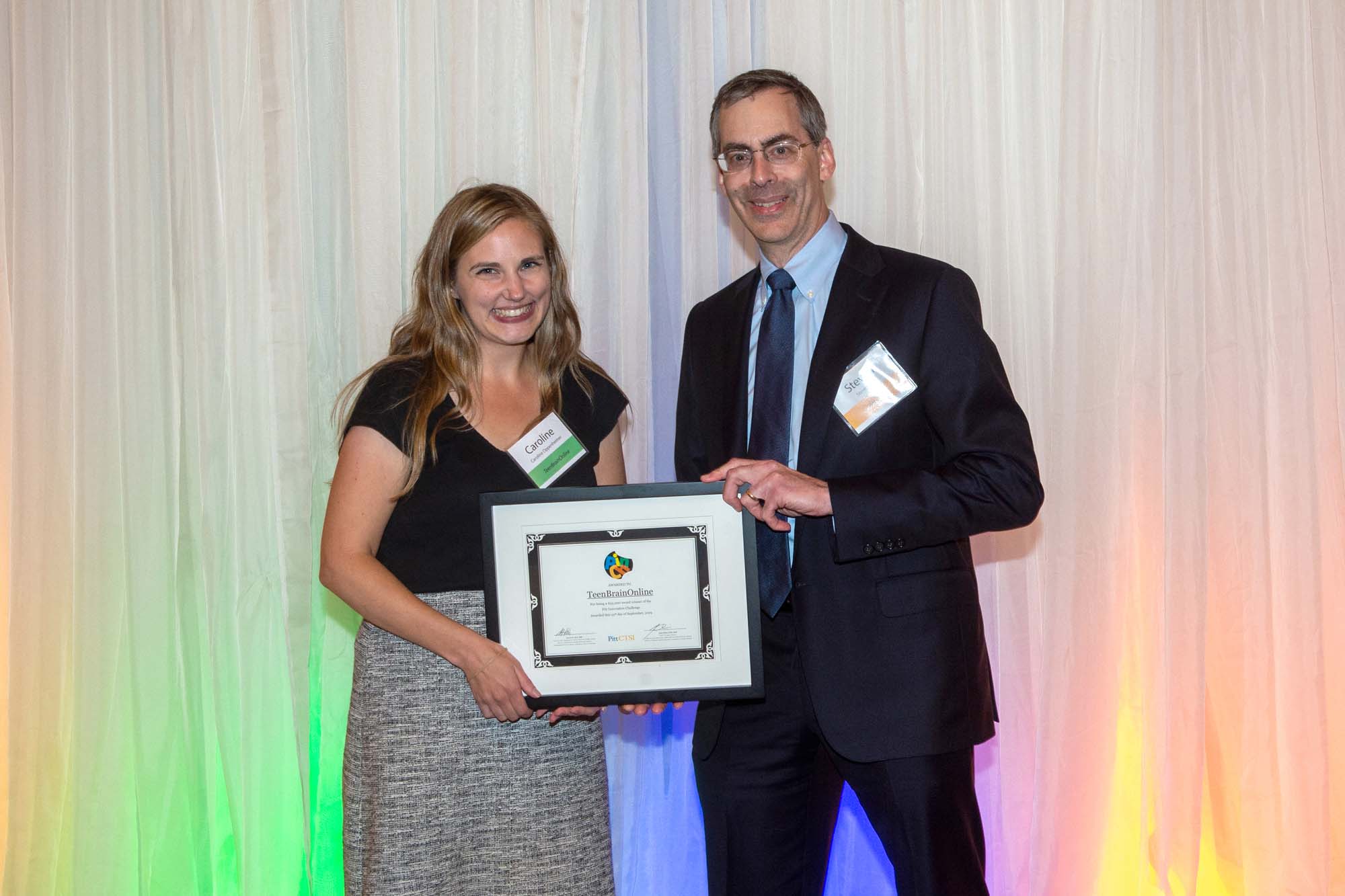
Team Members: Caroline Oppenheimer, PhD; Sophia Choukas-Bradley, PhD; Helmet Karim, PhD; Mary Phillips, MD; Jamie Hanson, PhD; Jennifer Silk, PhD
Description: A novel neuroimaging task to measure teen brain response to social media. This tool will address a need to study the impact of social media on rising teen depression and suicide rates.
Round 1 Application Video
Does your idea impact health disparities in a rural setting?
Rural Americans are a population that experience significant health disparities. Risk factors may include geographic isolation, demographics, socioeconomics, and higher rates of health risk behaviors. Studies have also shown that rural residents are older and have more limited access to healthcare providers. PInCh 2019 offered a bonus prize of up to $25,000 to funded teams whose solutions specifically aim to reduce one or more rural health disparities.
Examples of topics include:
- Novel programs that promote healthier behaviors in a rural setting
- Tools that provide increased access to healthcare services in a rural setting (e.g., telemedicine)
- A new technology that helps ensure clean water or limits exposure to specific environmental hazards and exposures common in agricultural or mining settings

